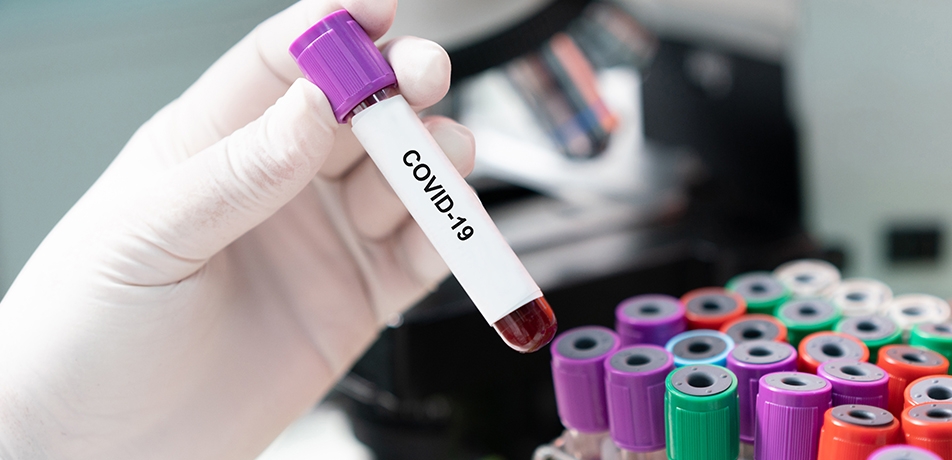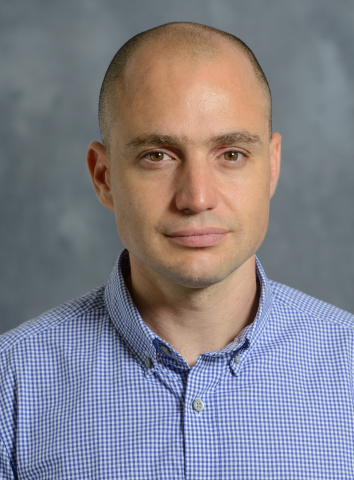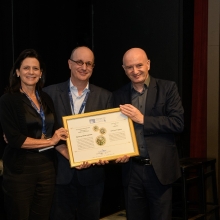Recovered COVID-19 patients to the rescue
Antibodies left behind in their blood may help protect others
Briefs

Dr. Ziv Shulman believes that the blood of coronavirus patients who have fully recovered from the disease may contain a hidden blueprint for building what the world needs: a molecule that can form the basis of new strategies for treating individual patients, and slowing the spread of the coronavirus.
Some severely ill coronavirus patients have already been treated on an experimental basis with the blood plasma of recovered patients, which is teeming with antibodies against the virus. But even if this method proves successful, it is unlikely to offer a large-scale solution to immunity and treatment. That’s because it depends on plasma donors, whereas antibodies—once identified—could be produced in large amounts by pharmaceutical companies and are relatively safe.
Dr. Shulman, of the Department of Immunology at the Weizmann Institute, is an expert in the adaptive immune response—the mechanism by which the body’s immune system recognizes specific invading microbes, establishing long-lasting immunological “memory” that provides perpetual protection against re-exposure to harmful pathogens. Antibodies are molecules found in bodily fluids that can recognize and neutralize specific harmful invaders.
D. Shulman and his lab were the first in the world to visualize all of the antibody forming cells in intact complete lymph nodes—bodily organs where immune cells improve the efficiency of their antibodies through series of mutations. This achievement, which contributed a major breakthrough in our understanding of the “how, what, when, and where” of the production of protective antibodies, included the imaging of all lymph node niches—discrete areas where antibodies undergo structural changes, improving their ability to target and bind to invading pathogens.
Dr. Shulman’s research identified and characterized the “training” process that immune cells undergo, providing an unprecedented level of detail about the step-by-step process by which the body’s immune system optimizes its adaptive, protective response.
Now, Dr. Shulman and his team are planning to apply their findings and expertise for the production and optimization of antibodies that will target one invader in particular: the SARS-CoV-2 virus.
Fully trained and certified in biosafety procedures—a must for coronavirus research—Dr. Shulman and his team are in the process of establishing an experimental platform for handling samples from convalescent coronavirus patients.
Telltale signs
As part of a clinical collaboration and together with Dr. Ron Diskin from the Department of Structural Biology, Dr. Shulman has obtained access to human patients who have been exposed to the coronavirus and have fully recovered. These patients have volunteered to let the scientists examine their blood for telltale signs of antibodies generated in response to their coronavirus infection.
The Shulman team plans to use genetic sequencing and other laboratory techniques to clone the antibody-encoding genes and produce them in the lab. This will allow them to identify the antibodies that are most effective in binding to, and neutralizing, viral proteins.
“Patients who have already been infected by the coronavirus, and have recovered, hold the cure for the disease,” Dr. Shulman says. “By reproducing antibodies that target and neutralize viral proteins, it may be possible to use them to treat patients who suffer from severe respiratory failure. In addition, antibody injections might be used as a prophylactic treatment—a passive vaccine—that would protect medical staff from coronavirus infection.”
Dr. Shulman is supported by the Azrieli Foundation, the Sir Charles Clore Research Prize, the Comisaroff Family Trust, the Lowy Foundation, the Morris Kahn Institute for Human Immunology, the Gerald O. Mann Charitable Foundation, the Moross Integrated Cancer Center, the David M. Polen Charitable Trust, and Rising Tide Foundation.

Dr. Ziv Shulman







